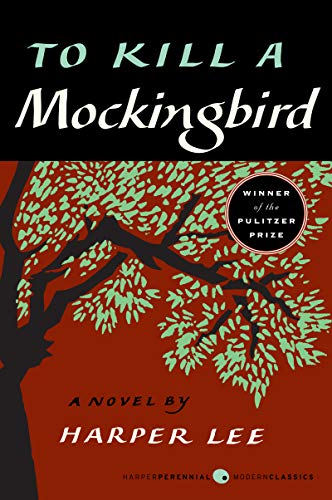
At first glance of this week’s blog post, it might seem odd that a college student is choosing to write a blog post about a book typically read by 8th graders and high school freshmen. After all, I first read this American classic in my 9th grade Honors English class. However, I absolutely despised this book at the time. I found it to be slow and dragging. Fortunately, my opinion has changed significantly since then. I am the first to readily admit that I did not have a good English teacher that first year of high school. I’m sure she was a hard worker, but she valued quantity over quality. Consequently, this led to all of the Honors English I students reading four books at once just for her class. Although I have no problem with trying to soak up as much information and knowledge as possible, I honestly did not learn much about any of the books we read at the time that we read them. For most of the year, I would leave class asking myself what we even did that day. Those aren’t exactly the thoughts any student should be leaving class with, for class felt like a whole lot of nothing. We would “talk” about the books, but not really. It’s difficult to really delve into a book when your teacher is bouncing back and forth between four of them! Sadly, I feel as though my opinion of the class and my teacher at the time paired with the genuine lack of discussion for the books we read impacted my opinions of what are generally considered “good” books. To Kill a Mockingbird is among those included.
Aside from the few classics I actually had read, I realized that there were many classic books that I had never gotten to in high school as I left for college. You would expect a high school graduate from the top of their class to have read books such as The Great Gatsby, Catcher in the Rye, and Pride and Prejudice. Don’t get me wrong. It’s not like I graduated high school having read nothing. I still read Macbeth, 1984, The Adventures of Huckleberry Finn, and others. However, there are some pretty important books that never quite made their way into my formal education or personal reading. My personal reading especially took a hit within the last few years. The craziness involved in adjusting to college life forced me to put personal reading on the side in a similar manner that my high school studies forced me to do the same. Those first two years of college were spent figuring out my major, how to get good grades, what my passions were, and forming relationships with some of the best people to have ever come into my life. I was pretty busy! Life transitions can be time consuming, leaving my personal reading to fall to the wayside…temporarily. My passion for reading re-emerged when I took a class called The Holocaust in Film and Literature last year. This class involved a lot reading, but I found the reading to be rather enjoyable. I even wrote a blog post about one of the books we read (read it here). Yes, the subject matter was obviously grim, but it sparked a hunger for more books in my life, and I decided to start with the classics simply because I felt that there were many of them that I should have read by now. I want to be someone that is considered to be well-read and cultured. There is no time like the present to start filling in those gaps.
The reason I started this reading endeavor by re-reading To Kill a Mockingbird is because I wanted to re-evaluate a book that is generally very loved by many people. Praised for being eloquently written and gracefully crafted, it is often a highlight of many students’ high school English classes. I wanted to change my mind, so I decided that I would to give this book a second chance. I admitted that I did not like the book the first time around, but I was definitely in the minority opinion there. Having read it now as an adult with more life experience and no pesky deadline to meet, I was able to truly enjoy this book for what it really is: a powerful message wrapped up in a story full of endearing characters from the perspective of a child. As an adult, different things resonate with you as a reader than when you are fourteen years old. I had a stronger admiration for Atticus, a deeper love for Scout, and a more thorough understanding of the symbolism. I’m not saying that we didn’t cover these things back in high school, for perhaps we did. What made it different during my second read is that I enjoyed my reading experience, which lead me to understand the same things on a deeper level. It made me wonder what kind of an experience I would have re-reading another book I read when I was younger. Now, I am curious as to what other new understandings I could encounter if I were to re-read Lord of the Flies, for example. However as much as I enjoyed changing my mind about a book from high school, I am looking forward to reading many more books that I should have read a long time ago. Now, I have begun to sink my teeth into Wuthering Heights, and I will be sure to share my thoughts and reflections with you all as I fall in love with reading yet again.
xx
Emily